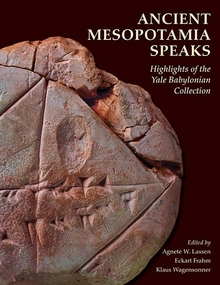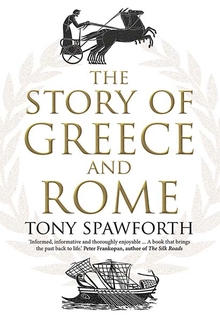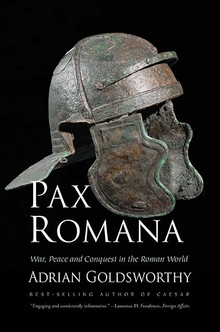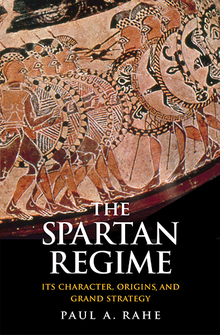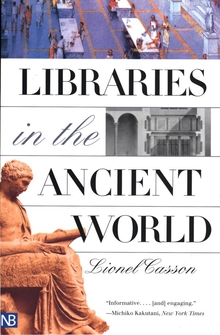Soldiers and Ghosts
WARNING
You are viewing an older version of the Yalebooks website. Please visit out new website with more updated information and a better user experience: https://www.yalebooks.com
A History of Battle in Classical Antiquity
J. E. Lendon
A major new history of battle in the ancient world, from the age of Homer through the decline of the Roman empire
What set the successful armies of Sparta, Macedon, and Rome apart from those they defeated? In this major new history of battle from the age of Homer through the decline of the Roman empire, J. E. Lendon surveys a millennium of warfare to discover how militaries change—and don’t change—and how an army’s greatness depends on its use of the past.
Noting this was an age that witnessed few technological advances, J. E. Lendon shows us that the most successful armies were those that made the most effective use of cultural tradition. Ancient combat moved forward by looking backward for inspiration—the Greeks, to Homer; the Romans, to the Greeks and to their own heroic past. The best ancient armies recruited soldiers from societies with strong competitive traditions; and the best ancient leaders, from Alexander to Julius Caesar, called upon those traditions to encourage ferocious competition at every rank.
Ranging from the Battle of Champions between Sparta and Argos in 550 B.C. through Julian’s invasion of Persia in A.D. 363, Soldiers and Ghosts brings to life the most decisive military contests of ancient Greece and Rome. Lendon places these battles, and the methods by which they were fought, in a sweeping narrative of ancient military history. On every battlefield, living soldiers fought alongside the ghosts of tradition—ghosts that would inspire greatness for almost a millennium before ultimately coming to stifle it.
A selection of the History Book Club, the Discovery Channel Book Club, and Readers' Subscription
"Soldiers and Ghosts isa stunningly original contribution to our understanding of ancient warfare, written with great style and verve. It is one of those rare books that powerfully challenges received opinion and demands attention. At the same time, it is a wonderful read that should hold appeal for any layman with an interest in the Greeks and Romans or simply in the history of warfare."—Donald Kagan, author of The Peloponnesian War
"This fascinating book is an eloquent reminder that ideals matter even more than technology in war, then and now. Athenian and Spartan generals, and Alexander in Asia fought their battles with Homer’s Iliad in mind, mindful of the enduring Greek values of rivalry and cleverness. But (as Lendon encourages us to wonder) if Roman leaders had not continued this tradition of individual distinction, would fewer soldiers have died, and would the Roman Empire have been able to withstand the forces that eventually destroyed it?"—Mary Lefkowitz, Wellesley College
"This book is doubly rewarding: specific historical detail, frequently linked to the prose and poetry of the era, ensure that readers get a high-level education in both military history and literature."—Peter Skinner, Foreword Magazine
"An ambitious and interesting attempt at a cultural approach to military history."—reviewing shortlist for 2005 History Today Award
"Interesting food for thought regarding motivations for the ancient Greek and Roman soldiers and their commanders."—Steven E. Sidebotham, Journal of Military History
"Soldiers & Ghosts is an excellent starting point for readers interested in the military histories of Greece and Rome."—Nicholas E. Efstathiou, Military History
"The book provides an excellent survey of the military history of the Graeco-Roman world and the rise and fall of several empires."—New York Military Affairs Symposium Review
"Brilliantly analyzed."—William Grimes, New York Times
"Lendon . . . has written a major reinterpretation of classical warfare. . . . A major and welcome addition to the literature."—Parameters
"A classical scholar displays formidable scholarship . . . in this history of combat in the classical world from the Iliad to the fall of Rome. . . . Witty, erudite, and painstaking."—Publishers Weekly
"Soldiers and Ghosts, like any ghost story should be, is fast-paced, cunningly constructed and supplied with an eerie final twist. And it deserves to be read far beyond the confines of university classics departments, because its theme is a universal one: the impulse that drives men to go to war."—Tom Holland, Sunday Telegraph
"J.E. Lendon offers an entertaining analysis of the evolution of ancient warfare in Soldiers and Ghosts."—Archaeology
"Soldiers and Ghosts is an elegant inversion of the argument for a distinctive ‘Western way of war’ based on the idea of progress. . . . This important book is a reminder that surface similarities can conceal profoundly, essentially different matrices, and that by extension, surface differences may be mere bumper stickers concealing common underlying values and desires."—Dennis Showalter, The Weekly Standard
Publication Date: August 22, 2006


